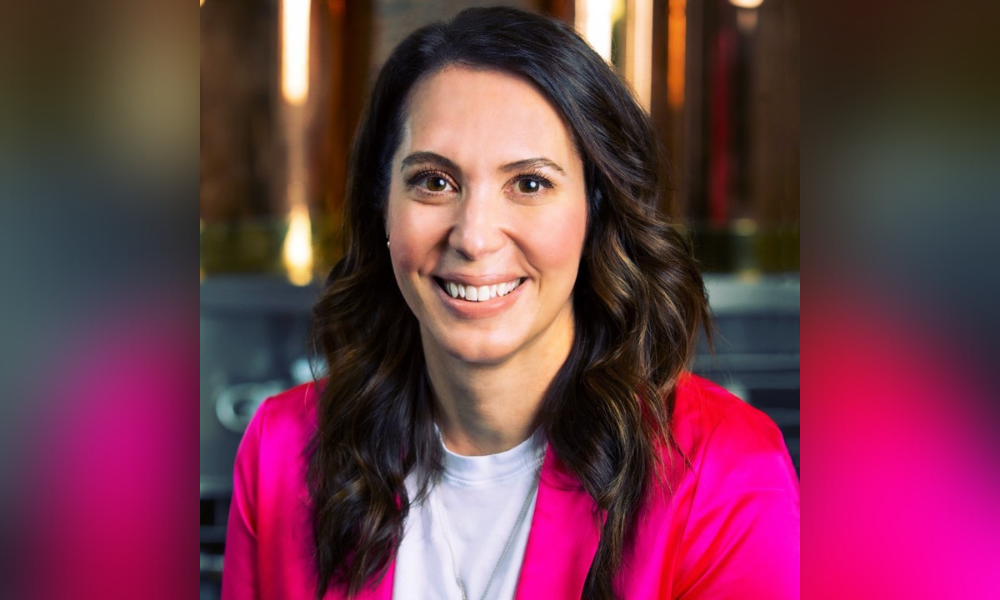
Being pushed into 'uncomfortable roles' can lead to success, says Lindsay King

Budweiser, Busch Light, Cutwater, Stella – what do they all have in common? They’re all owned by global brewery giant Anheuser-Busch – and they’re all brands led by women. Speaking with Anheuser-Busch’s chief people officer Lindsay King, she tells HRD just how immensely proud she is to work for an organization that’s championing female leadership – especially in such a historically male-dominated sector.
“As a company, we have made great strides at accelerating progress for women through workplace diversity and inclusion initiatives,” she says. “Anheuser-Busch InBev was recently recognized by Forbes as one of the World’s Top Female-friendly Companies, which recognizes companies that excel at championing women in work through factors like competitive pay, gender equality in career advancement opportunities, parental leave benefits and more.
“Our growth in women leadership further speaks to this progress: Today, more than half of Anheuser-Busch’s most recognizable brands are being run by women.”
And the giant’s come a long way since they started brewing beer 165 years ago. Founded by German American brewer George Schneider in 1853’s Missouri, the brand managed to survive the Prohibition and two World Wars. Now employing over 19,000, Anheuser-Busch is an icon of the brewing world – and they’re committed to moving the dial when it comes to diversity.
“Working in the alcohol industry for the past 16 years, I’ve been inspired by how much progress has been made in terms of diversity” says King. “We know a more diverse beer industry is a better beer industry. Diversity, and specifically more women in beer, helps us better relate to and understand consumers, partners and retailers. I’ve been proud to witness the impact of our progress, both within the walls of Anheuser-Busch and externally in our marketing and consumer experience efforts. While we certainly have much further to go, we will remain steadfast in our commitment to attracting and retaining more talented women leaders.
Last year, they launched an evolved purpose statement: “We dream big to create a future with more cheers.”
“For us, part of ‘Creating a Future with More Cheers’ means every individual has a seat at the table and can share in the celebration,” adds King. “We continue to champion the causes and initiatives that bring our colleagues together and celebrate the strength of our diverse teams. As chief people officer, I’m striving to create shared value for all our colleagues — through learning and development, benefits and more.”
This commitment comes from a deeply personal place for King. Having begun her career nearly two decades ago in roles at Gap Inc. and CIBC Mellon, she eventually became an HR business partner at Labatt Breweries in Toronto.
“I worked hard to move up the ladder and was eventually appointed to vice president of people,” says King. “Becoming Labatt’s first woman vice president of HR in Canada will always be one of my career highlights. The opportunity to work as Head of HR, in an organization I loved, in my home country, was a launching point for my HR career at ABI and solidified my passion for bringing people together around our company’s core values.”
Her role with Anheuser-Busch has taken King all over the world – moving to Australia with her husband and two young children as the new vice president of people for Australia, India and South East Asia business units. Then came New York, where King was made global VP of people continuity – a role that saw her manage everything from employer branding and recruitment to engagement, training, DEI and talent management for 155,000 employees world-wide.
And, as a women in a (metaphorically) men’s world, King says she feels a huge responsibility to be the best version of herself while simultaneously empowering those around her to do well too.
“I believe one of my key strengths is that I have an exceptional eye for talent, but my work doesn’t end by just bringing them into the organization,” she tells HRD. “I love working with and mentoring the next generation of women leaders to push them to grow and develop. I will take a chance on people and support them at every stage of their career.
“I wouldn’t be where I am today without women — and men — mentors who pushed me into opportunities and roles that were uncomfortable but ultimately led to my success. Everyone needs champions. And don’t be mistaken, I still need the occasional push to speak up in a meeting.”
The shift from DEI as a nice to have to a strategic necessity has been felt across all industries. The pandemic has acted as a catalyst for upheaval, especially where personalization is concerned. As the data tells us, it’s no longer enough to roll out one-size-fits-all policies and expect your people to be satisfied – something that King’s taken to heart.
“Over the past few years, there’s been a shift in how employees look to their employers for support, information, resources and connections in ways they hadn’t previously,” says King. “Being an employer of choice means prioritizing people and their unique needs in the workplace. Leaders must understand the experiences of their team members and take time to listen and address issues that pertain to their values and what they care about — whether that’s an internal initiative or external cause.
“I believe having a company that is supportive of women across their career and life phases — especially those caring for others while building a career — is incredibly important.”